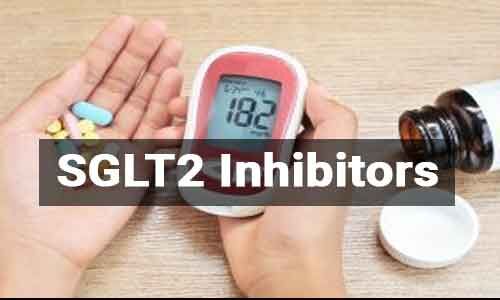- Home
- Medical news & Guidelines
- Anesthesiology
- Cardiology and CTVS
- Critical Care
- Dentistry
- Dermatology
- Diabetes and Endocrinology
- ENT
- Gastroenterology
- Medicine
- Nephrology
- Neurology
- Obstretics-Gynaecology
- Oncology
- Ophthalmology
- Orthopaedics
- Pediatrics-Neonatology
- Psychiatry
- Pulmonology
- Radiology
- Surgery
- Urology
- Laboratory Medicine
- Diet
- Nursing
- Paramedical
- Physiotherapy
- Health news
- Fact Check
- Bone Health Fact Check
- Brain Health Fact Check
- Cancer Related Fact Check
- Child Care Fact Check
- Dental and oral health fact check
- Diabetes and metabolic health fact check
- Diet and Nutrition Fact Check
- Eye and ENT Care Fact Check
- Fitness fact check
- Gut health fact check
- Heart health fact check
- Kidney health fact check
- Medical education fact check
- Men's health fact check
- Respiratory fact check
- Skin and hair care fact check
- Vaccine and Immunization fact check
- Women's health fact check
- AYUSH
- State News
- Andaman and Nicobar Islands
- Andhra Pradesh
- Arunachal Pradesh
- Assam
- Bihar
- Chandigarh
- Chattisgarh
- Dadra and Nagar Haveli
- Daman and Diu
- Delhi
- Goa
- Gujarat
- Haryana
- Himachal Pradesh
- Jammu & Kashmir
- Jharkhand
- Karnataka
- Kerala
- Ladakh
- Lakshadweep
- Madhya Pradesh
- Maharashtra
- Manipur
- Meghalaya
- Mizoram
- Nagaland
- Odisha
- Puducherry
- Punjab
- Rajasthan
- Sikkim
- Tamil Nadu
- Telangana
- Tripura
- Uttar Pradesh
- Uttrakhand
- West Bengal
- Medical Education
- Industry
High-dose SGLT2 inhibitors tied to superior blood sugar control in type 2 diabetes: Study

China: The use of clinically approved high-dose SGLT2 inhibitors may help in improving blood sugar levels, body weight and blood pressure in patients with poorly controlled diabetes, suggests a recent study.
The study, published in the journal Diabetes, Obesity & Metabolism, found that the overall efficacy of SGLT2 inhibitors mainly empagliflozin, dapagliflozin, and canagliflozin is dose-dependent.
Sodium-glucose co-transporter 2 (SGLT2) inhibitors are a new class of oral hypoglycaemic drugs. It is initially recommended to diabetes patients with cardiovascular disease or to those previously subjected to metformin-based treatment. SGLT2 inhibitors exert beneficial effects on the regulation of blood pressure, body weight, and blood sugar. However, it is not certain whether the effects are dose-dependent.
To fill this knowledge gap, Zhi-Chun Gu, Shanghai Jiaotong University, Shanghai, China, and colleagues aimed to determine the overall efficacy of high-dose versus low-dose SGLT2 inhibitors in patients with type 2 diabetes mellitus (T2DM).
For this purpose, the researchers searched the online databases between 1 January 2006 and 23 September 2020. Prespecified subgroup analyses for each SGLT2 inhibitor, follow-up, and controls were performed. Leave-one-out sensitivity and meta-regression analyses were conducted. The meta-analysis included a total of 51 randomized controlled trials involving 23989 participants.
Key findings of the study include:
- For glycaemic regulation ability, a significant reduction in glycosylated haemoglobin (MD –0.080%), fasting plasma glucose (MD –0.227 mmol/L), and postprandial plasma glucose (MD –0.834 mmol/L) levels was observed in the high-dose SGLT2 inhibitor group.
- Treatment with high-dose SGLT2 inhibitors enabled easier achievement of the target (HbA1c% < 7) than low-dose SGLT2 inhibitors (RR 1.148).
- High-dose SGLT2 inhibitor-based treatment resulted in more efficient regulation of body weight and blood pressure (body weight: MD –0.346 kg; SBP: MD –0.583 mmHg; DBP: MD –0.352 mmHg).
- The results were similar in sensitivity analyses.
"Our findings showed that the overall efficacy of SGLT2 inhibitors, mainly canagliflozin, dapagliflozin, and empagliflozin are dose-dependent," concluded the authors.
Reference:
The study titled, "High-Dose Sodium-Glucose Co-transporter 2 Inhibitors are Superior in Type 2 Diabetes: A Meta-analysis of Randomised Clinical Trials," is published in the journal Diabetes, Obesity & Metabolism.
DOI: https://dom-pubs.onlinelibrary.wiley.com/doi/pdf/10.1111/dom.14452
Dr Kamal Kant Kohli-MBBS, DTCD- a chest specialist with more than 30 years of practice and a flair for writing clinical articles, Dr Kamal Kant Kohli joined Medical Dialogues as a Chief Editor of Medical News. Besides writing articles, as an editor, he proofreads and verifies all the medical content published on Medical Dialogues including those coming from journals, studies,medical conferences,guidelines etc. Email: drkohli@medicaldialogues.in. Contact no. 011-43720751


